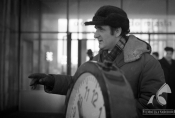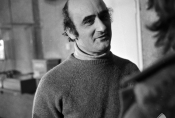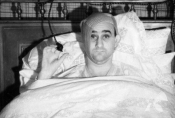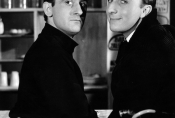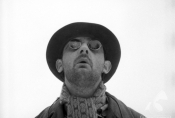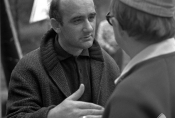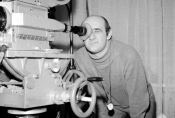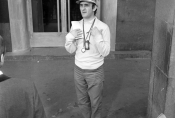Henryk Kluba
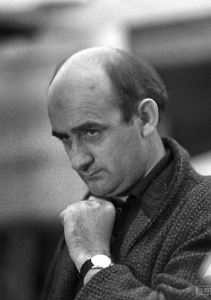
Film, theatre and television director, writer, actor and teacher. He was born on January 9, 1931 in Przystajnia near Częstochowa and died on June 11, 2005, in Konin. He graduated from the Theatre School at the Adam Mickiewicz Theatre in Częstochowa (1951). He studied classical philology at the University of Wrocław (1952). He graduated from the Directing Department of the State Film School in Łódź (1958; diploma in 1969). For many years he served as assistant director on films such as Pan Anatol szuka miliona/ Mr. Anatol Is Looking For A Million (1958) and Inspekcja pana Anatola/Inspection of Mr. Anatol (1959) by Jan Rybkowski, as well as Walet pikowy/Jack of Spades (1960) by Tadeusz Chmielewski. He was also second director on the set of I ty zostaniesz Indianinem/You'll Be an Indian (1962) by Konrad Nałęcki, Wiano/Dowry (1963) by Jan Łomnicki, Życie raz jeszcze/Life Once Again (1964) by Janusz Morgenstern and Walkower/Walkover (1965) by Jerzy Skolimowski.
As an independent director he debuted with the film Chudy i inni/ Skinny and Others (1966) – a psychological study of a group of people with shady pasts who work on the construction of a dam, made according to the socialist formula of a “production film”. The film, honoured with the Andrzej Munk award (1966), marked the beginning of Kluba’s close cooperation with Wiesław Dymny (writer, actor, artist), the pillar of Krakow’s Cellar Under the Rams group. Another film by the Kluba-Dymny duo was Słońce wschodzi raz na dzień/The Sun Rises Once A Day (1967, Golden Grape Łagów, 1985), made in the style of a picaresque ballad and set in the first years after the war in the Beskid village of Odkrzask. It is the story of a peasant leader named Haratyk and his singular understanding of the new social order. The film was released five years after it had been completed, edited by the censor and with a revised ending. Their next film – Pięć i pół bladego Józka/Five and a Half of Pale Joe (1971) – a drama about a group of bikers terrorising a town, was never officially released. Sowizdrzał Świętokrzyski/The Scatterbrain of St. Cross Mountains (1978), a poetic adaptation of the popular novel by Józef Ozga-Michalski, had to wait two years for its premiere. Problems with the distribution of his films resulted in the breakdown of the director, who subsequently decided to devote himself mainly to teaching. He made one more film, Gwiazda piołun/The Star Wormwood (1988), inspired by the novel by Wladysław Terlecki, dedicated to the last days of Stanisław Ignacy Witkiewicz. He taught at the State Film School in Łódź from 1967. In the years 1978-1981 and 1993-1993, he was dean of the Directing Department and in the years 1982-1990 and 1996-2002, he served as the rector.
Henryk Kluba was also an interesting supporting actor. He starred in nearly sixty films, including Dwaj ludzie z szafą /Two Men and a Wardrobe (1958), Gdy spadają anioły/When Angels Fall (1959) and Ssaki/Mammals (1962) by Roman Polanski, Inspekcja pana Anatola/Inspection of Mr. Anatol (1959) by Jan Rybkowski, Walkower/Walkover (1965) by Jerzy Skolimowski, Kochajmy syrenki/Let Us Love Mermaids (1966) by Jan Rutkiewicz, Nie ma róży bez ognia/There Is No Rose Without Fire (1974) by Stanisław Bareja, Urodziny młodego warszawiaka/A Young Warsaw Boy’s Birthday (1980) by Ewa and Czesłw Petelski, Darmozjad polski/The Polish Freeloader (1997) by Łukasz Wylężałek, and Eukaliptus/Eucalyptus (2001) by Marcin Krzyształowicz.
In the years 1987-1989, he was a member of the Committee of Cinematography. He was awarded the Commander's Cross with the Star of the Order of Polonia Restituta (1998).
Jerzy Armata
